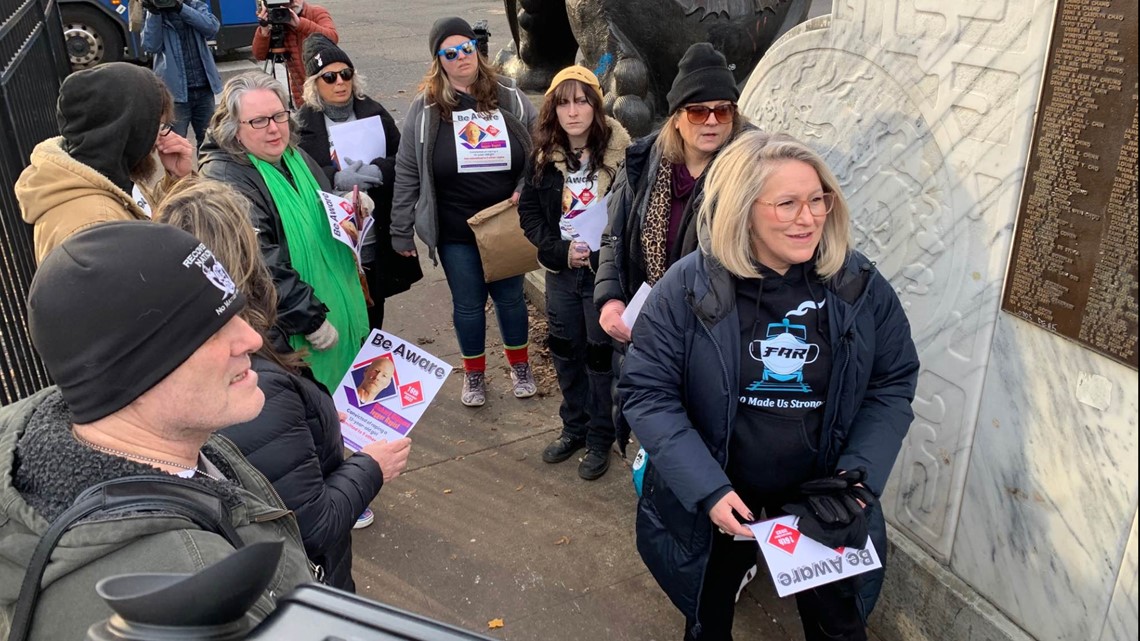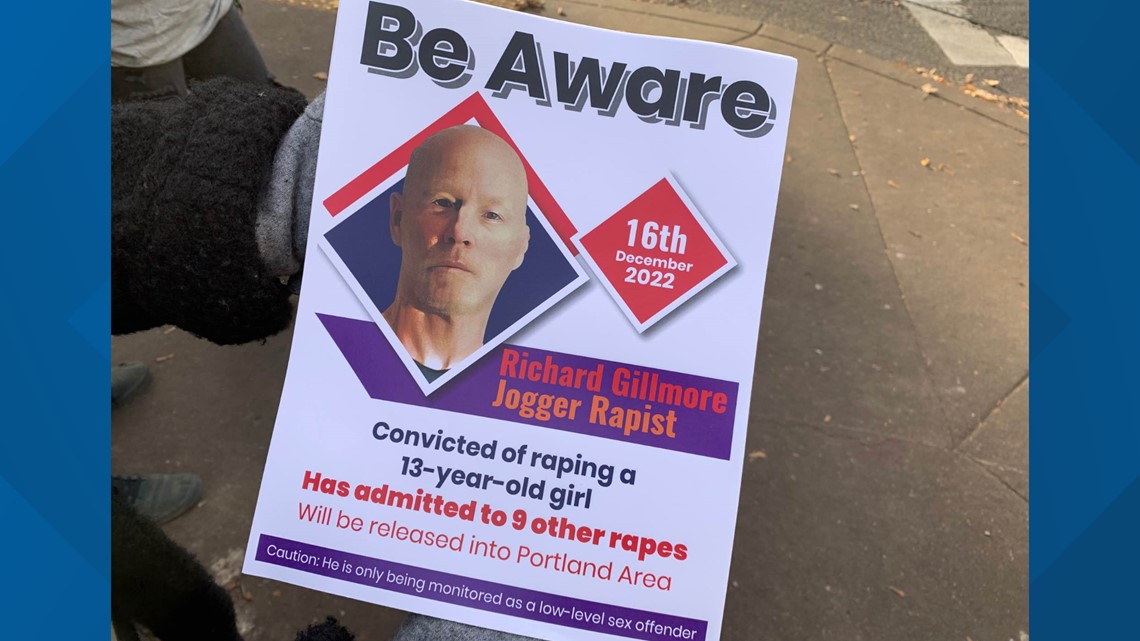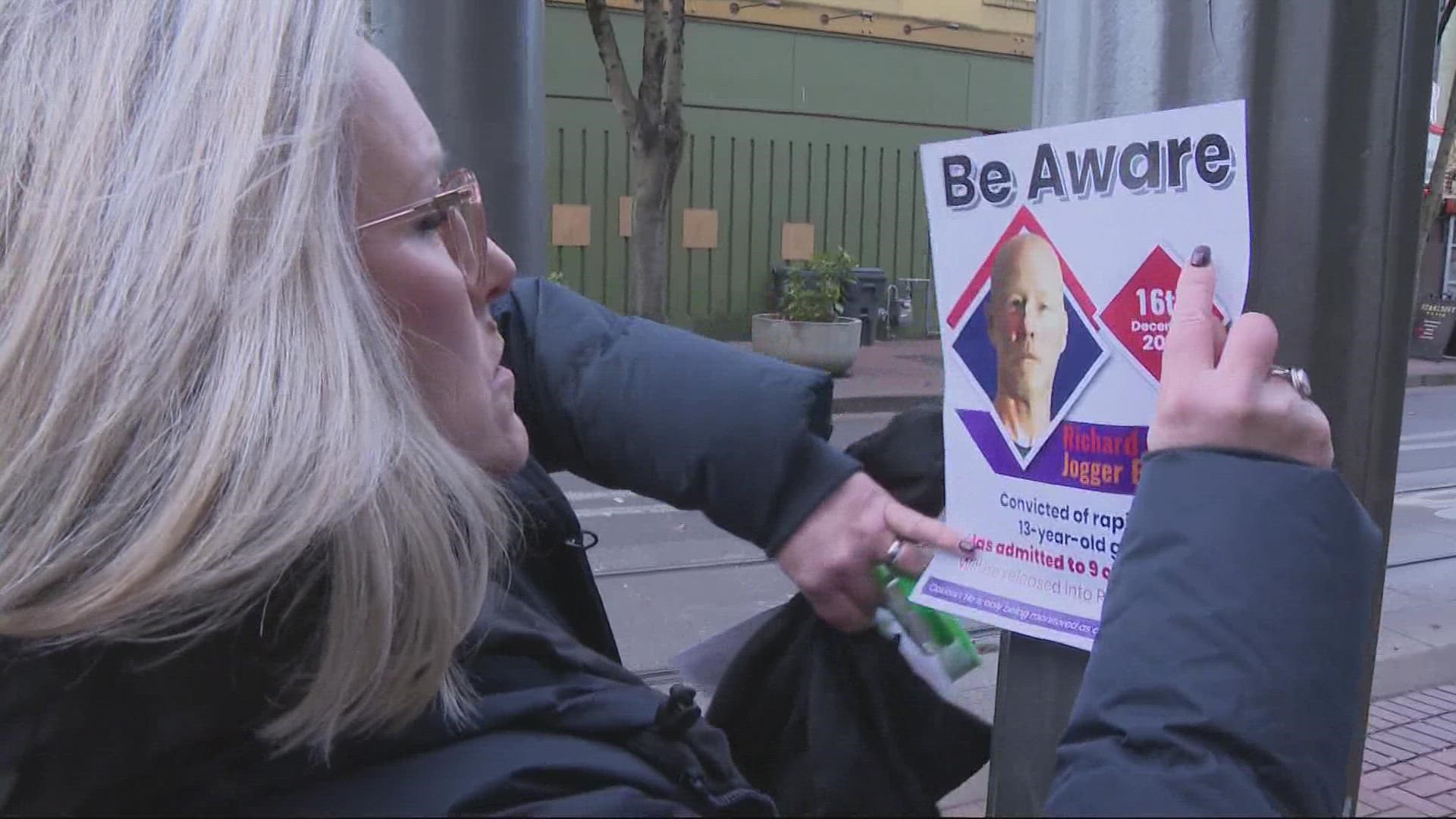PORTLAND, Ore. — Serial rapist Richard Gillmore, known in Oregon as the "Jogger Rapist," was released from prison Friday morning, the Oregon Department of Corrections confirmed.
Gillmore confessed to assaulting nine girls and women in the Portland area the late 1970s and early 1980s, although he was only convicted for the last of them in 1986 — the rape of 13-year-old Tiffany Edens — because the others fell outside the statute of limitations at the time.
Gillmore has served 36 years in prison. He was transferred to the Columbia River Correctional Institution in Portland in August in anticipation of being released.
He will initially go through transitional housing in the Old Town neighborhood, and will remain on post-prison supervision through 2034, with active supervision for at least the first three years.
Victims protest release conditions
A group of protesters gathered in Old Town Friday morning and hung up a series of flyers with details about Gillmore and noting that he had been classified as a low-level sex offender, a decision that has drawn public criticism.
"I am concerned for my family and myself," Edens said Friday. "I was a little nervous to come down here and boldly bring the word out, but if the state's not going to do it, we'll do it for our community."


Gillmore will be classified as a Level I sex offender, the lowest of the three risk levels for sex offenders, which means the state won't automatically notify neighbors of his presence. Another of Gillmore's victims has previously spoken out against that decision.
"What makes me angry now is that we think it’s acceptable that he is a level one because he is not, he is a very vicious brutal serial rapist," Danielle Tudor said at a media gathering in October.
Tudor was one of the nine victims that Gillmore admitted to attacking. He raped her inside her southeast Portland home in 1979. She said she believes he will reoffend, and she has family on Oregon who are taking precautions.


Edens echoed those concerns Friday, saying that she didn't understand how Gillmore could only be classified as Level I and that she's concerned for the community.
"I'm hoping they become aware," she said. "My main concern isn't about me anymore, it's really not about me, it's about the people here, the houseless, young girls and women, they're an easy target and they don't have a voice. They're already broken — who'd listen to them or even miss them if they were killed or raped?"
County details post-release plans
When asked about the post-release plans for Gillmore, a Multnomah County spokesperson said the Multnomah County Department of Community Justice has been working with the Oregon Board of Parole and Department of Corrections on transition planning.
Despite his low-risk status, Gillmore will be placed on a high-risk supervision plan, which will include GPS monitoring, a strict curfew and regular check-ins, both scheduled and unscheduled, the county said. It will also include a prohibition on contracting victims in any way and prohibitions on contacting minors or being in places where minors congregate.
Gillmore will live in subsidized housing in Northwest Portland in a location where minors are not permitted, the county said. The site is staffed 24 hours by a community provider and 5 days a week by the Department of Community Justice.
Gillmore could face jail sanctions if he violates the conditions of his supervision, or be returned to prison if he violates them to a level where his parole is revoked, the county noted.
The Department of Community Justice's Victim and Survivor Services office has also assigned an advocate to the case, the county said, and any victim or survivor can choose to work with the advocate on issues like system navigation, safety planning and trauma education.

